Top 10 Mastering Myths
10. All Mastering Engineers Know how to Master All Genres
9. Digital is Better than Analog, or Analog is Better than Digital
8. You Should Never Make a Master Loud
7. You Don’t Need Mastering, Just Use a Limiter
6. A.I. Mastering Has Replaced Traditional Mastering
5. One Master Will Work for all Music Mediums
4. How Mastering Works is a Mystery
3. Stem Mastering is Basically Mixing
2. Mastering is Excessively Expensive
1. Mastering can Completely Fix a Problematic Mix
10. All Mastering Engineers Know How to Master All Genres

Genre matters when mastering - that's why it's a good idea to find a mastering engineer that can master your genre.
When looking for a tracking or mixing engineer, or maybe a producer, an artist seeks out the best person for their particular sound. During these forms of production, there seems to be an added emphasis on who is the best engineer or producer for the genre being made.
For whatever reason, this same thinking doesn’t get applied to mastering , as many artists and producers assume that a good mastering engineer will be able to adequately master a track regardless of the genre.
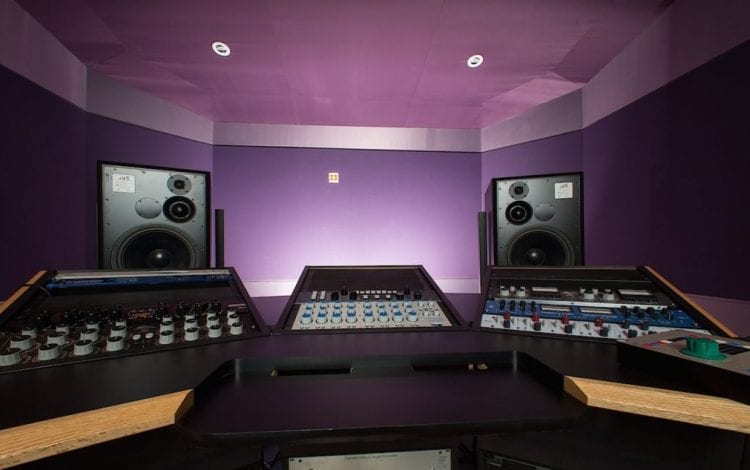
Although artists look for the best engineers for their genre, they often don't do this for mastering.
Although this is partially true in that a talented mastering engineer will be able to adapt to a new genre, there are still mastering engineers that are better suited for mastering a specific genre.
In other words, just like there are tracking and mixing engineers that are experts in creating rock, rap, pop, or jazz music, there are mastering engineers that are best suited for mastering a particular genre.

Just like there are experts at recording and mixing certain genres, there are experts at mastering certain genres.
If you want to know which mastering engineers are best at mastering a specific genre, take a look at their discography to see what they work on most often. If you can, find some examples of albums they’ve mastered, especially ones that are similar to the music you’re making.
If you’d like to hear some of our mastering examples, check out some before and after comparisons here:
You can compare the original mixes with the mastered file, giving you a good idea of how our analog mastering services are performed.
9. Digital is Better than Analog, or Analog is Better than Digital
The comparison between Analog and Digital, and which form of processing is “better” has been the topic of debate since digital processing’s inception; however, both digital and analog processing offer distinct advantages.
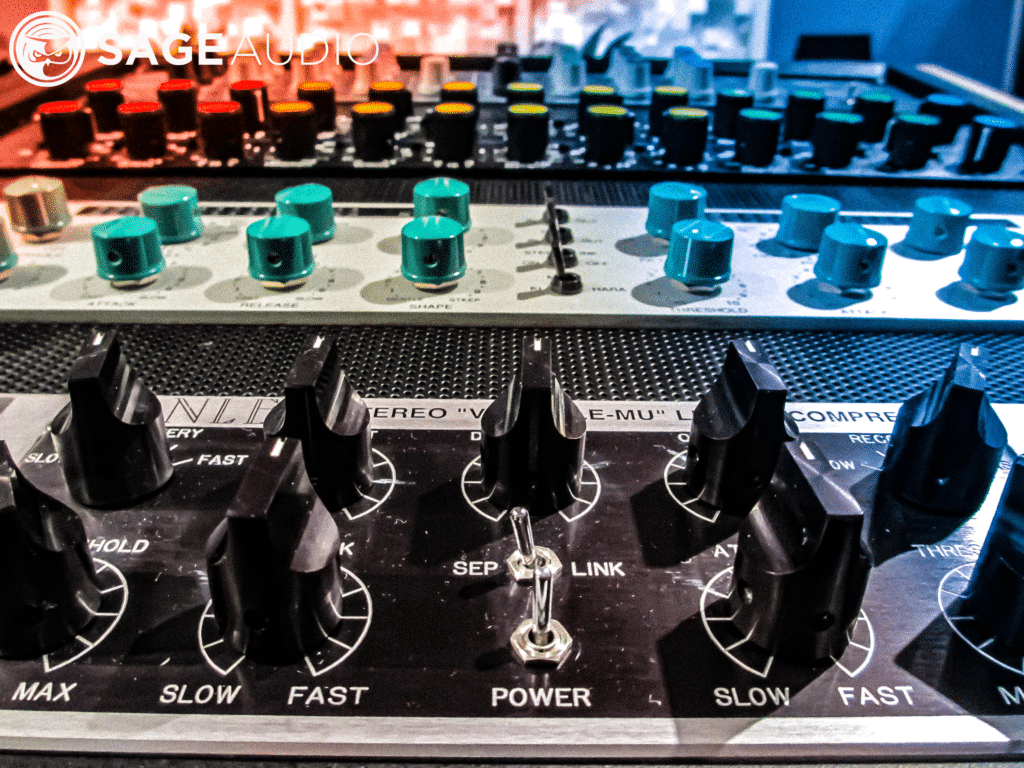
There has always been a debate between analog and digital since digital's inception.
The same holds true for mastering - both analog and digital mastering have advantages during a mastering session.
For example, digital mastering offers the ability to instantly recall a session - this means that any revisions needed are easy to perform. Furthermore, it ensures that during project recall, the settings used are the exact same as how they were before.
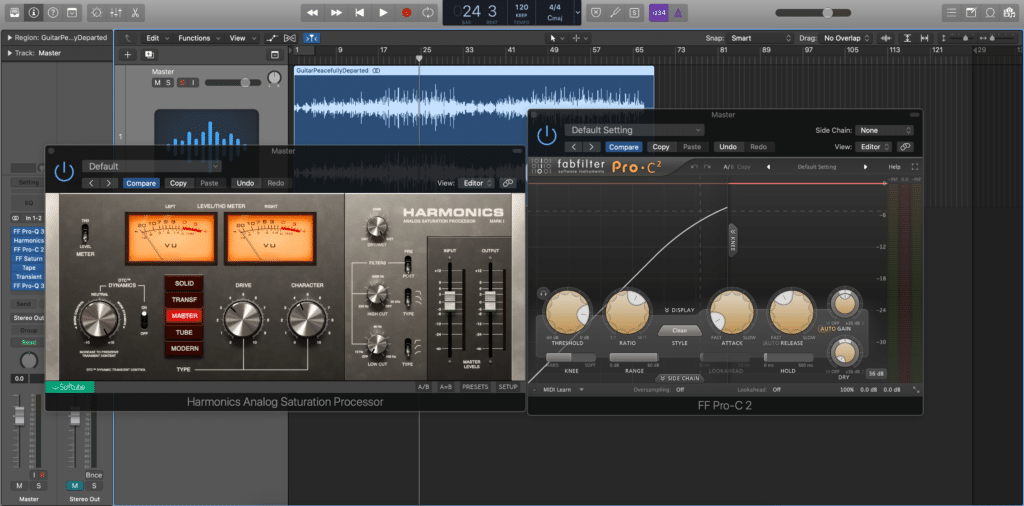
Digital has some advantages, like being able to recall a session almost instantly.
With analog mastering, extensive notes need to be taken when preparing for and performing a project recall.

When recalling an analog session, extensive notes need to have been taken.
Lastly, digital processing allows for more effects to be used without increasing the noise floor. Additionally, more effects can be used due to the sheer amount of plugins a digital system can store and utilize.
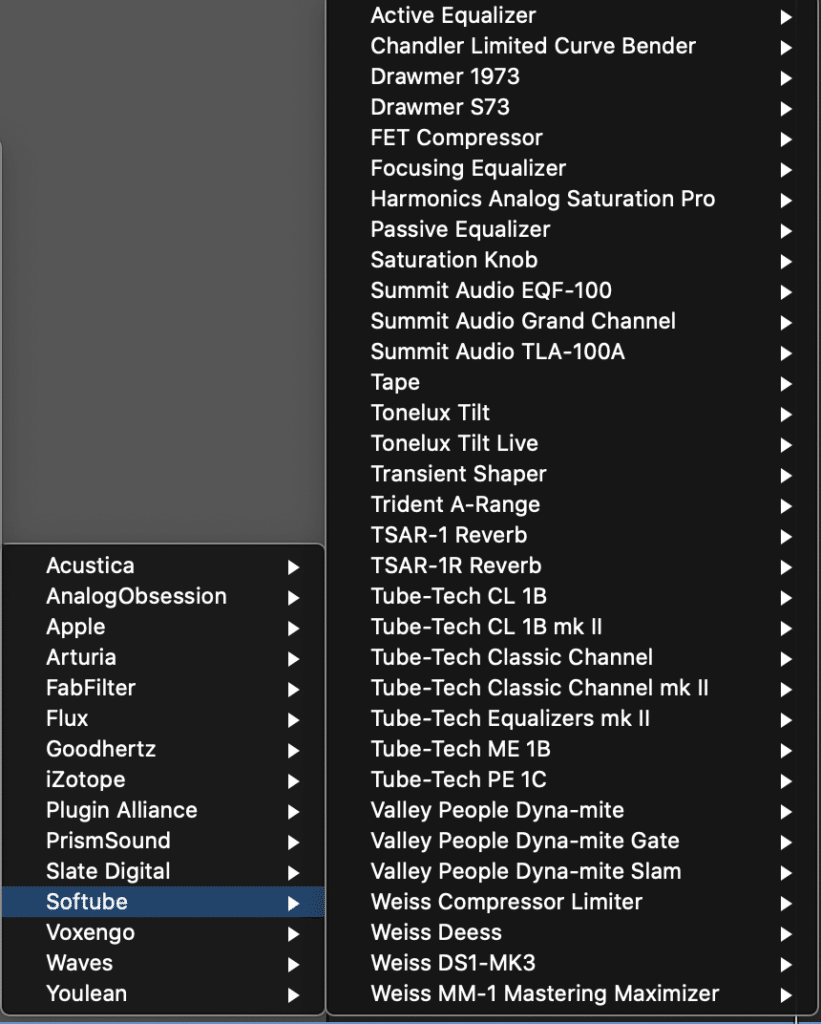
Digital also allows for more forms of processing due to how easy it is to buy and store plugins.
Another example, one that showcases the advantages of analog mastering, is that analog mastering provides more accurate and complex forms of the “analog sound.”
Most digital processing today is in one form or another, analog emulation. The reason being, analog equipment imparts beneficial and sonically pleasing distortions onto a signal.
Although digital processing is capable of emulating this sound, it does not entirely match the sound produced by analog equipment. This is why many still use analog mastering services as their primary means of mastering.
If you’d like to hear this for yourself, send us one of your mixes and we’ll master a sample of it for free:
We’ll master it for you and send you a free sample for you to review.
Also if you’d like to learn more about both digital and analog mastering, check out our blog posts on these two topics:
Both offer a unique perspective on these forms of processing.
8. You Should Never Make a Master Loud
This myth is rooted in something pretty factual: You Should Never Make a Master Excessively Loud. However, avoiding making a master excessively loud doesn’t mean that a master shouldn’t be loud in general.
In fact, there are many genres that sound great when mastered a bit louder than normal. Additionally, making a master loud doesn't necessarily mean that the master lacks dynamics, or has clipping distortion.
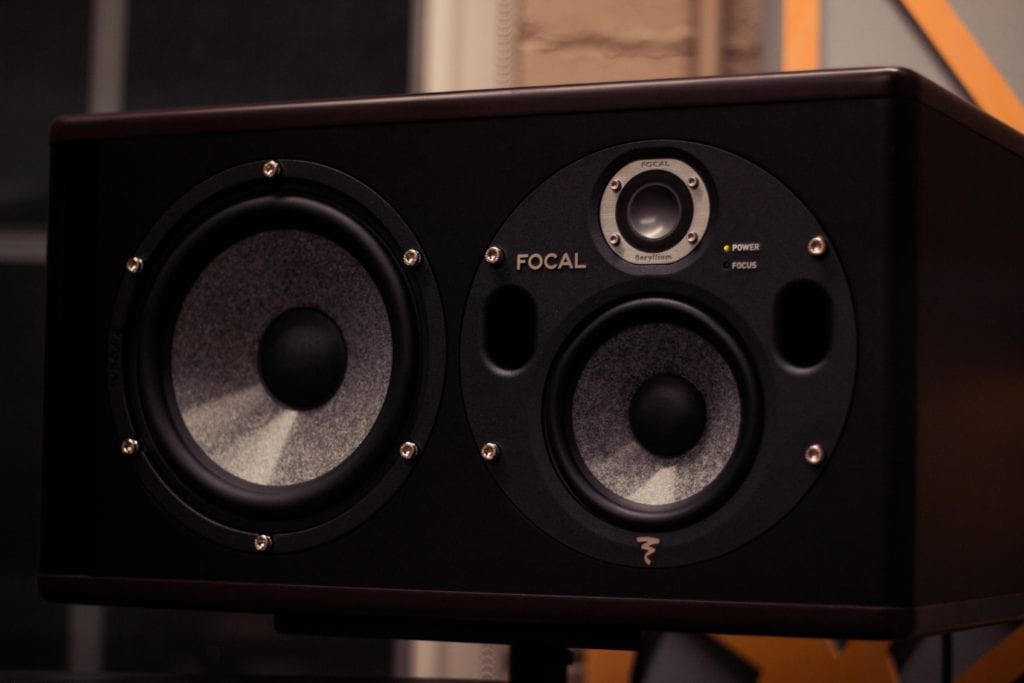
Some genres sound better when mastered loudly.
If performed correctly and carefully, a master can be made loud without the negative repercussions that are often associated with a loud master.
Just to be clear, here are the negative repercussions of making an excessive loud master - this is what a loud master should avoid creating:
- Lacking Dynamics
- Clipping Distortion
- Distortion during Online Encoding
- A Fatiguing Listening Experience
Also, here are the benefits of making a master loud, but in the right way:
- Greater Impact During Dynamic Changes
- Amplified and Perceivable Lower-Level Signals
- Better Translation to Consumer-Grade Listening Systems
- An Inherently Perceived Better Sound Quality
Let's look at some of these benefits in greater detail.
When making a master louder, you, in turn, take the quieter aspects of the mix and push them into a perceivable level. If left quiet, these elements of the mix would’ve been masked by the louder aspect of the mix; however, by attenuating dynamics (within a reasonable degree) and amplifying these quieter aspects, you allow them to be heard.

One advantage if creating a loud master is that it translates better to consumer-grade listening systems.
For this very reason, the master will translate better on consumer-grade equipment . Because less-expensive amplifiers and speakers distort at lower and higher levels, creating a master that can be easily perceived at a “medium” listening level of amplification aids the sound of your master.
Lastly, the fact that listeners will be able to hear the detail of your master, and perceive the more nuanced aspects of it will, in turn, make it sound better to most. Furthermore, loud masters have the perception of sounding better - just so long as they are not excessively loud.

Loud masters also have the instant perception of sounding better - keep in mind this is not true for excessively loud masters.
So in short, although you should avoid making an excessive loud master, avoid making a master loud altogether won’t make your masters better. In other words, a loud master can sound great if made correctly.
7. You Don’t Need Mastering, Just Use a Limiter
Using a limiter isn’t the same thing as mastering. This misconception is on occasion shared amongst mixing engineers or artists that feel they can perform mastering on their mix’s output channel.
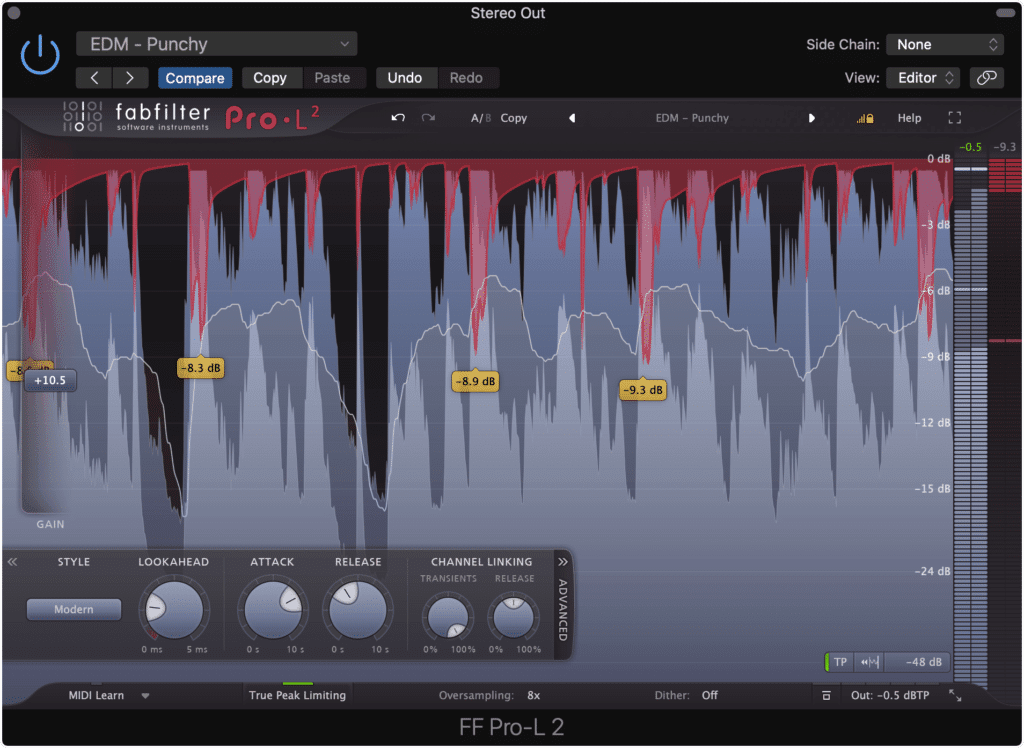
Some engineers and artists believe that using a limiter is the same thing as mastering - this is not the case.
Although mastering can be performed on a mix’s output, or an engineer can “mix into the master,” this isn't the same as only using a limiter.
Engineers that “mix into the master” must have an incredibly comprehensive understanding of both mixing and mastering , as well as the equipment or processing power needed for such a resource-consuming project.
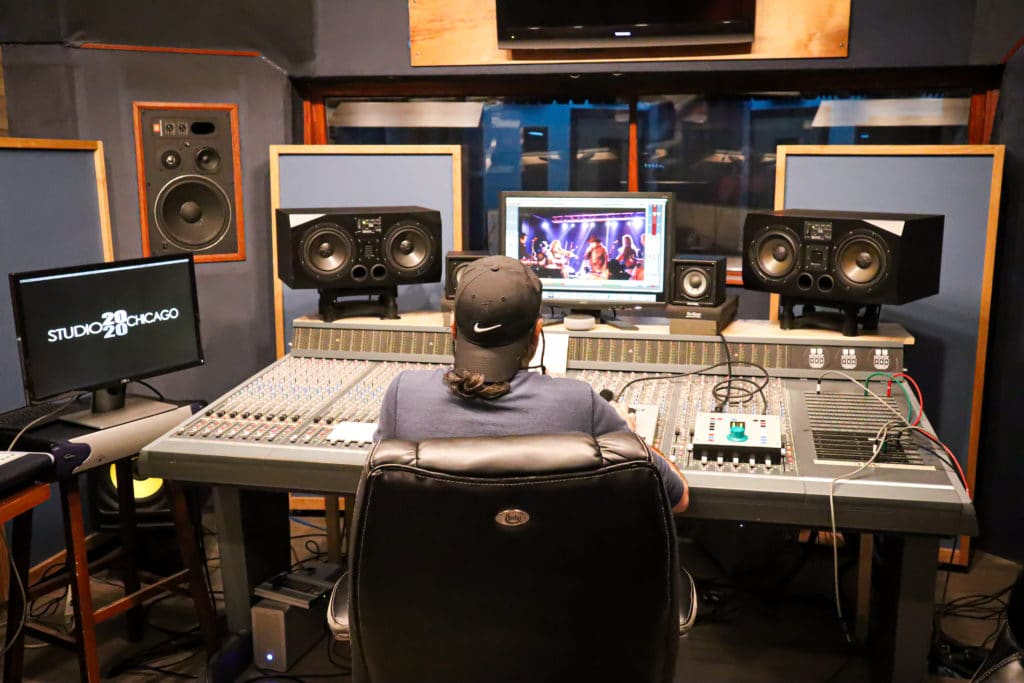
Some engineers can "mix into a master" meaning they can perform both forms of processing in a single session - but this takes a lot of skill and computer processing power to accomplish.
With that said, avoiding the mastering process and simply using a limiter to make your mix loud, is completely different than actually having your mix properly mastered or “mixing into the master.” If you’re considering using a limiter on your output and calling it a day, please reconsider.
Considering the amount of work that goes into making a recording, from writing, producing, recording, editing, and mixing, finishing that process with an adequate master is the right call.
6. A.I. Mastering Has Replaced Traditional Mastering
It's true that A.I. or online algorithmic-based mastering has become increasingly popular in the past half-decade, but the notion that it’s putting an end to traditional studios is pretty far from the truth.

Although AI mastering is an exciting new field, algorithmic-based mastering (which makes up the majority of instant online mastering services) is not replacing traditional mastering.
Granted, online mastering and algorithmic mastering does offer a quick and convenient way for artists to have their songs mastered - Furthermore, these services are pretty inexpensive, with most being under $300 for a yearly subscription.
But the increased popularity of online mastering hasn’t changed the fact that many want a trained and experienced engineer to master their mixes with care, and with a unique perspective. Although A.I. mastering can sound good, it cannot address a mix in a unique manner, or respond creatively to a problem.

Algorithmic mastering cannot address unique problems - this may be remedied when AI mastering becomes more developed, but for the time being algorithmic mastering cannot address mastering in a unique manner.
This may change in the future, as the technology grows and becomes more complex, but even then, there will always be those who prefer the sound of something created by a person, instead of a machine or algorithm.
If you’d like to learn more about online mastering and how it's changing the field of audio mastering, check out our blog post on the topic:
It compares the cost, quality, ease of use, and other factors of traditional mastering and online or A.I. based mastering.
5. One Master Will Work for all Music Mediums
This one is more of a common misconception than a full-blown myth, but it does help to know nonetheless.

Each medium will need a different master to best suit the technical limitations of that medium.
Many artists are under the impression that they can use 1 master for their online, vinyl, and cd release, but in actuality, it is much better to have a master that is specifically dedicated for each medium.
This is especially true with both Vinyl and Cassette releases , as each physical medium has specific technical limitations that heavily affect the mastering process.

Any physical medium, be it a vinyl record or cassette have specific qualities that need to be addressed during mastering.
If you want your music to sound as good as it possibly can, consider having multiple masters, each for the medium on which you intend to release your music.
Also, if you’d like to learn more about mastering for various mediums, here are 3 blog posts that can guide you through the process:
Each one provides valuable information on mastering for a particular medium.
4. How Mastering Works is a Mystery
This is a big myth I hear whenever I discuss mastering with an artist, or maybe someone that tracks or mixes audio - for whatever reason, mastering is shrouded in mystery, as if its some bizarre and foreign art that only a select few insiders know the details of.

To some engineers in other fields of audio production, and to some artists, audio mastering seems like a mystery.
Although this image is a cool one to have, the reality is a little less exciting. Granted mastering is a very nuanced and technical realm of audio engineering, but so is tracking, editing, and mixing.
In truth, mastering employs the same types of processing that mixing does just used differently. Additionally, the end goal of mastering is different than other forms of processing, but each form of audio engineering has its own goals.
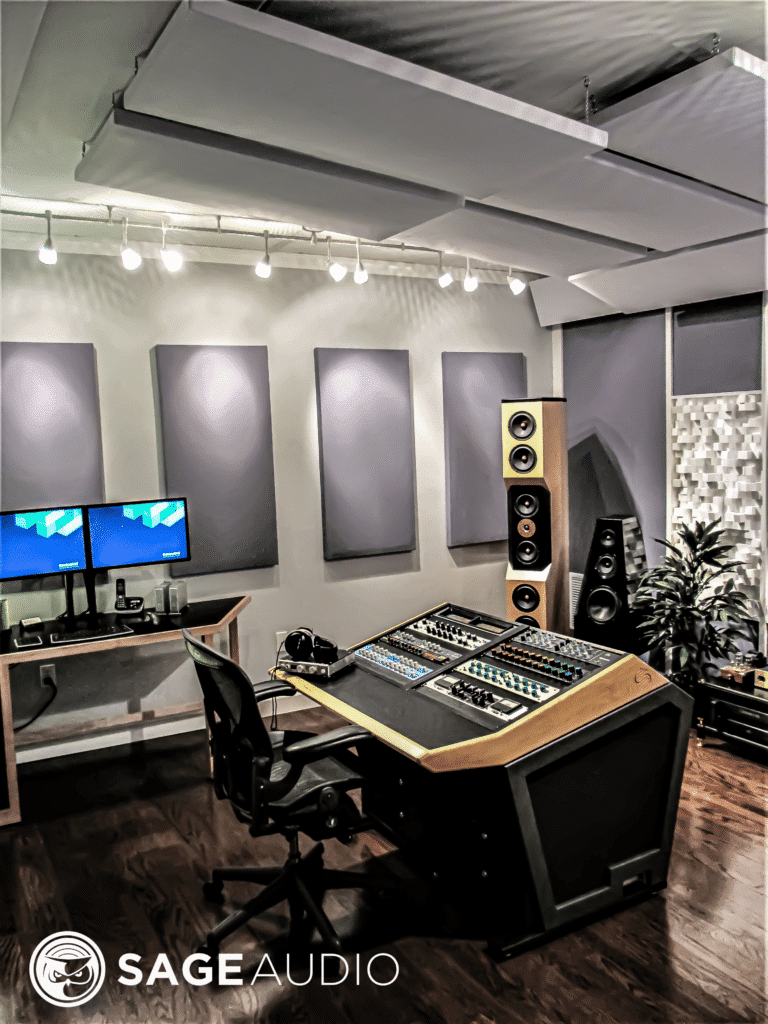
Mastering is less enigmatic than it seems, as it consists of processing used in other forms of audio production.
The point is, although its cool to seem enigmatic, mastering is like other forms of audio engineering, both in its complexity and in having unique qualities.
If you want to know more about mastering, check out our blog post on the topic:
It covers mastering to an incredibly in-depth level, showcasing everything about mastering that makes it unique.
3. Stem Mastering is Basically Mixing
Although mixing and stem mastering share some similarities, they are nonetheless two distinct processes, each with unique goals and forms of processing.
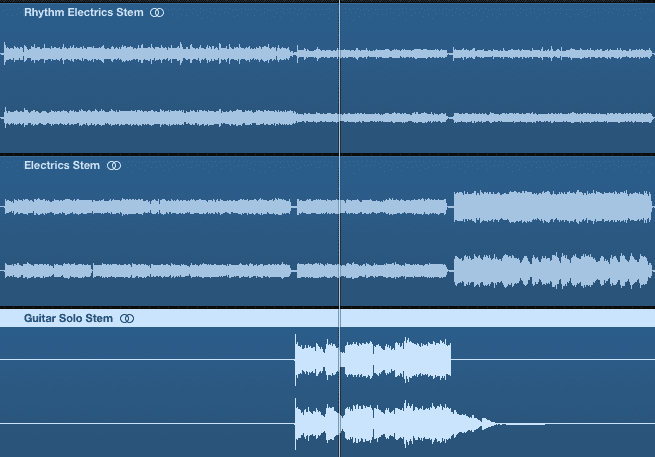
Although stem mastering and mixing may look similar, they are two very distinct forms of processing.
The idea that these two things are the same most likely comes from how the sessions look. On the surface , both mixing and stem mastering are comprised of multiple recorded tracks, each track receiving specific processing.
But this is where the similarities run out - whereas mixing is used to create a mix as the final product, stem mastering creates a master that is ready for distribution.
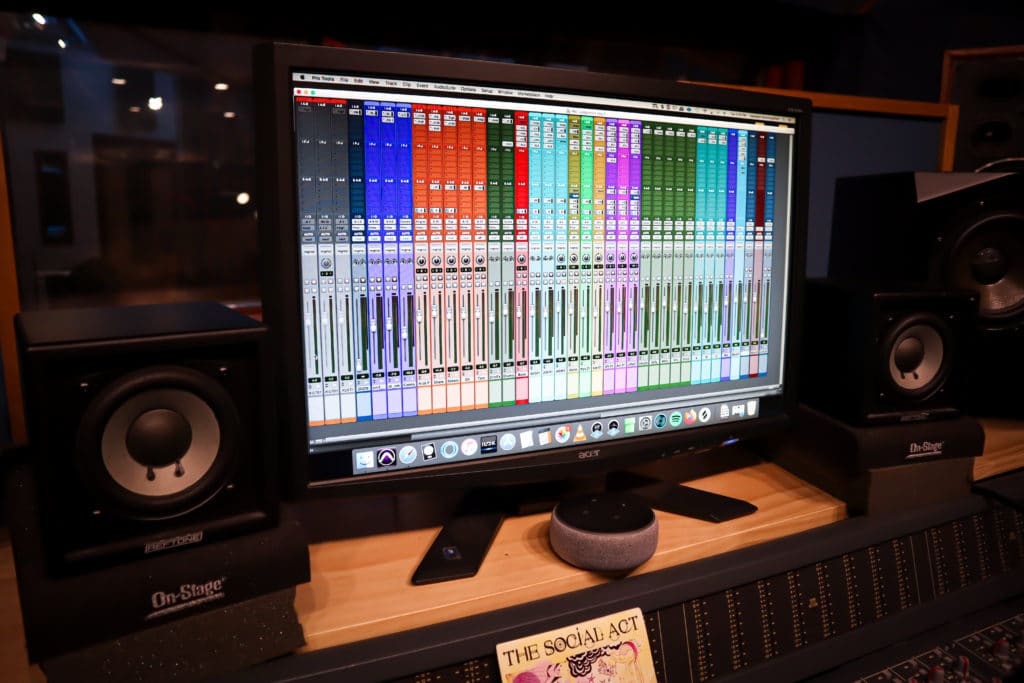
Mix sessions do not result in a final product, whereas stem mastering sessions do.
The differences between these two, a mix and a master ready for disruption, are significant, to say the least.
Furthermore, the processing used for mixing and stem mastering varies greatly, both in what is applied (temporal processing is used in mixing but avoided in mastering) and the extent to which it's used (6dB of compression may be appropriate during mixing, but it certainly isn’t during mastering).
With that said, although they look similar, mixing and stem mastering are very different steps in the audio engineering process.
2. Mastering is Excessively Expensive
Recently I read an article about how online mastering was making mastering available to those who couldn’t afford it before - intrigued, I kept reading only to find some huge misconceptions regarding the cost of mastering.

There is a lot of speculation regarding the cost of mastering.
For example, this particular article stated that mastering a single could cost upwards of $10,000 (although this would be great for mastering engineers if we could charge this much, no engineer in their right mind would).
Even the most renowned engineers in the world cannot charge prices this high. That said, most mastering services are reasonably priced.
For example, if you wanted to master a 10 song album with us at Sage Audio, the average cost is $42 per song. Although many artists want to avoid extra expenses, the truth is, having your album mastered is not going to be your greatest expense - nor is it even going to be a significant expense in the grand scheme of creating an album.
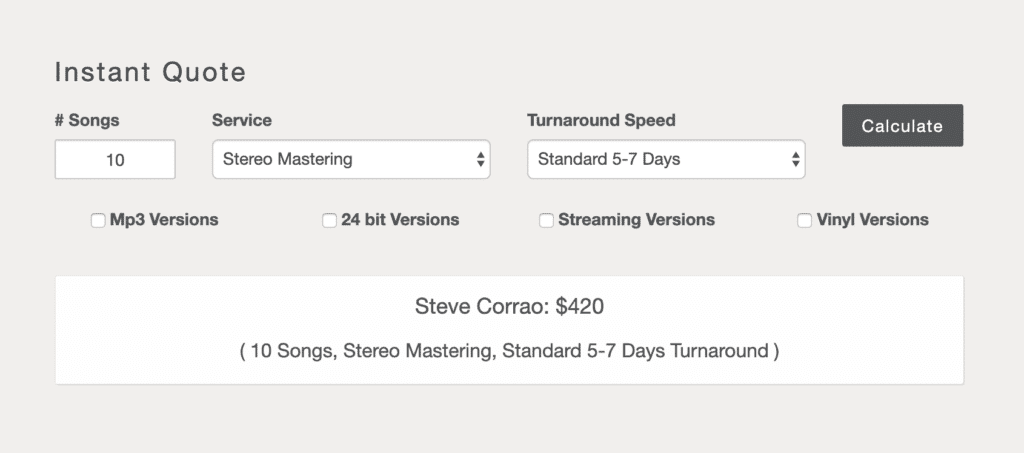
The rates for Sage Audio mastering and many other mastering studio are relatively affordable.
If you’d like more information on the price of mastering, you can check out our rates here:
You’ll find that everything is reasonably priced and affordable, even on an independent budget.
1. Mastering Can Completely Fix a Problematic Mix
It's true that mastering can fix issues in a mix, and augment the good aspects of that mix - that’s the very reason mastering exists at all!
But to think that mastering can fix every issue of a mix is unfortunately not true . It would be great if everything that went wrong during tracking, editing and mixing could be remedied during the last step of production, but it takes all other steps being performed exceptionally well to create a great sounding master.
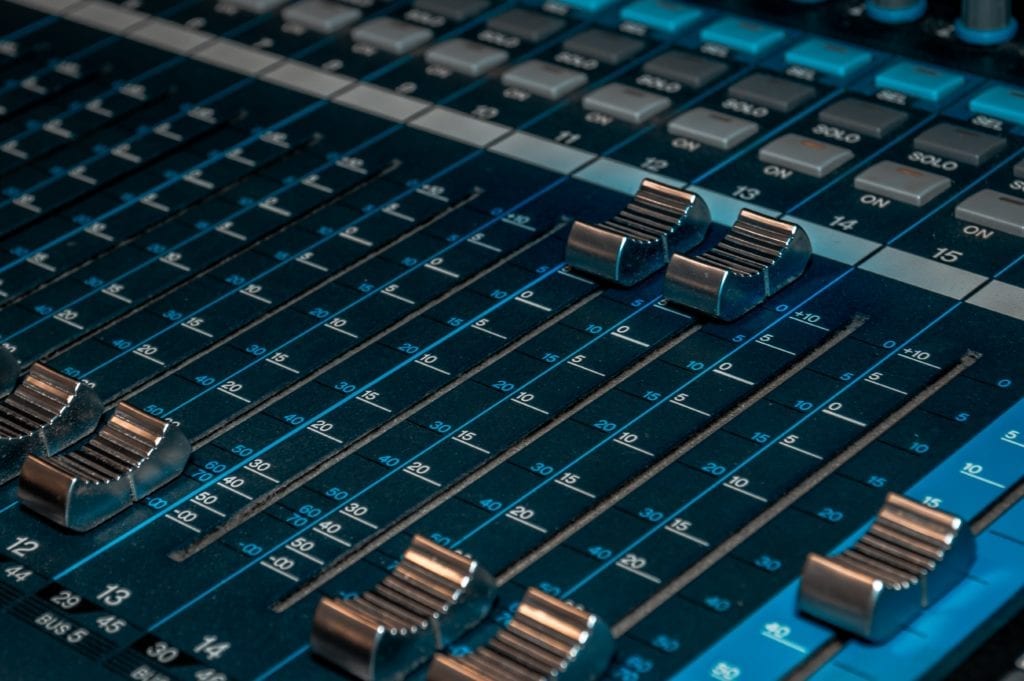
If there are huge issues in the mix, unfortunately, they cannot all be remedied by mastering.
With that in mind, if you have a mix that needs work, don’t turn to mastering to fix that mix.
It helps to think of it this way - stereo mastering can raise the “letter grade” of your mix by 1 letter, and stem mastering can raise it 1 and 1/2 letters. So for example, if the mix is a ‘B,’ stereo mastering can make it an ‘A,’ while stem mastering can make it an ‘A+.’
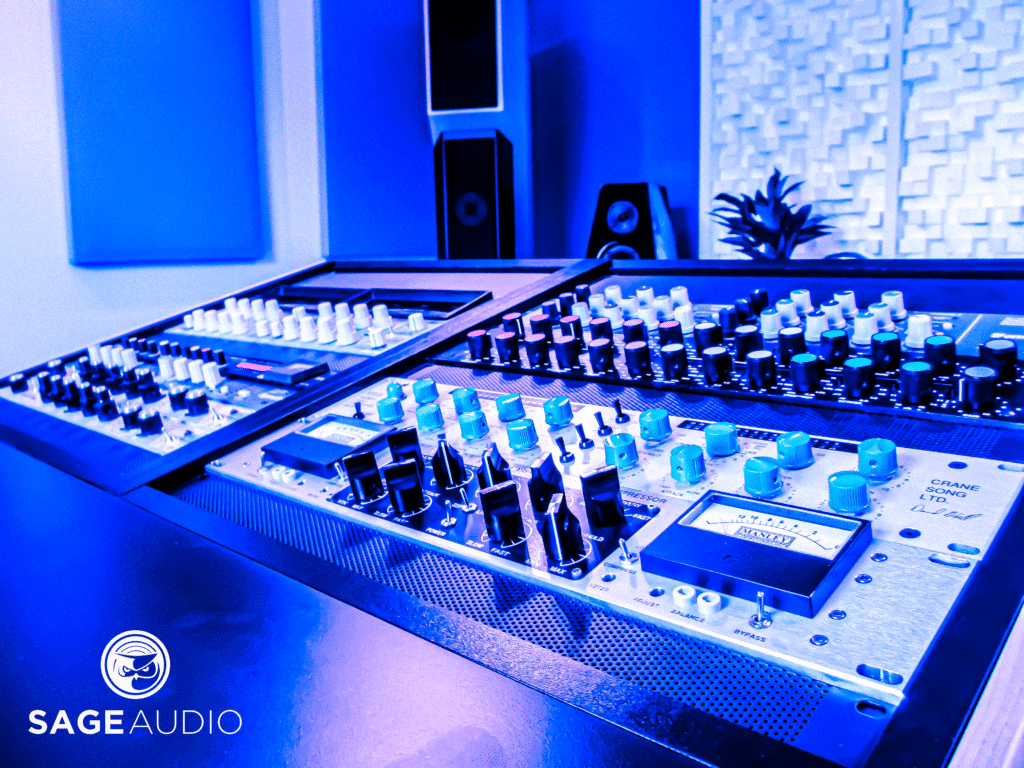
Mastering can fix some issues in a mix, but it cannot completely fix a mix - especially one that needs to be remixed.
Following that thought, if the mix is a ‘C’ or lower, it may be best to have it remixed and to address the problems at other stages of the production.
If you’d like to hear your mix mastered, send it to us here:
We’ll master it for you, and send you a sample for you to review.
Conclusion
There are a lot of myths about mastering that are affecting how with think about it, but hopefully, some of the info above can counteract the misconceptions.
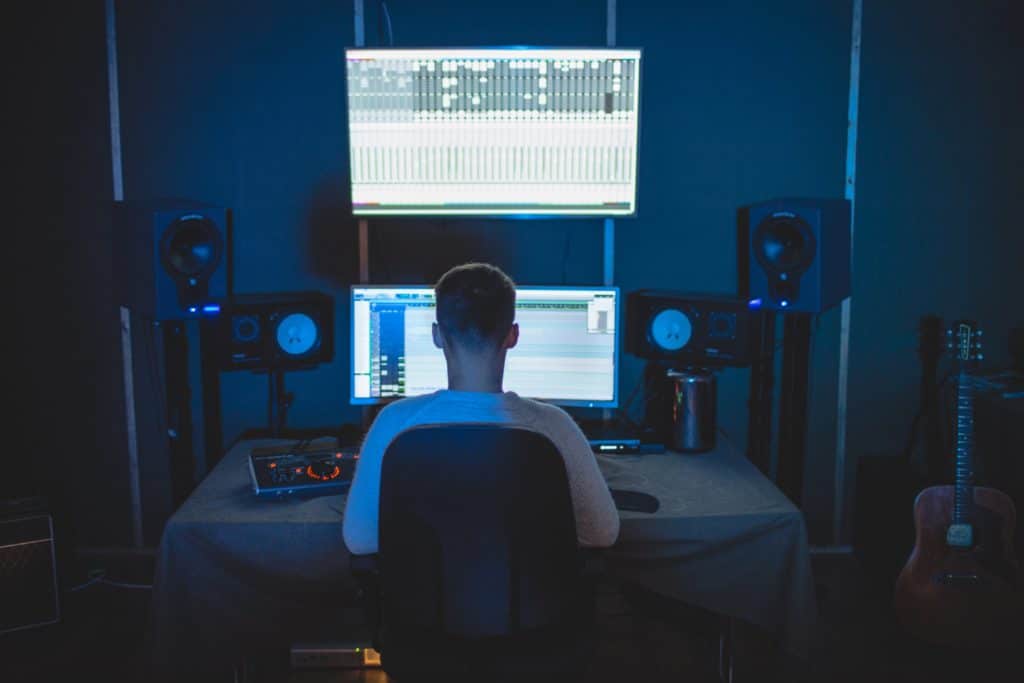
Hopefully, the information provided here will help clarify some of the common myths and misconceptions about mastering.
Ideally, even if you have no intention of mastering music, understanding it better will help if you’re in the tracking, editing, or mixing stages of creating your project. If you have any additional questions about mastering, feel free to reach out at any point, we’d love to hear from you.
If you’d like to hear your music mastered, send it to us here:
We’ll master it for you and send you a free mastered sample for you to review.
Do you know of any additional mastering myths?




